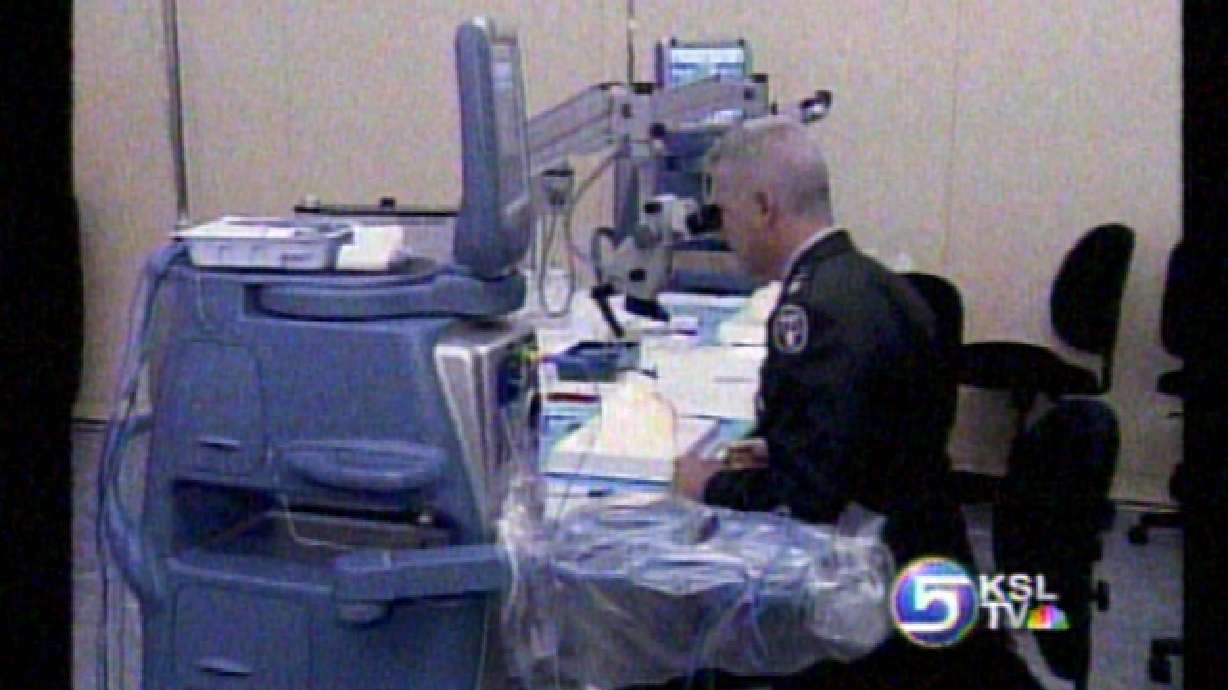Estimated read time: 2-3 minutes
This archived news story is available only for your personal, non-commercial use. Information in the story may be outdated or superseded by additional information. Reading or replaying the story in its archived form does not constitute a republication of the story.
Dr. Kim Mulvihill ReportingThe Iraq war has produced the largest number of military casualties since the Vietnam war; that's in part because of improvised explosive devices or IEDs.
It's guerrilla warfare in Iraq, where booby traps and roadside bombs too often do their dirty work. Once exploded, these devices propel hot shards of jagged metal, maiming or killing all who cross their path.
Scott Barnes, M.D., U.S. Army Eye Surgeon: "The improvised explosive device or IEDs really are the weapon of choice for the insurgents, and they're very effective at causing a lot of damage "
Lt. Colonel Doctor Scott Barnes should know, the eye surgeon recently returned from active duty in Iraq
Dr. Barnes: "This is the most incredible and the most horrible experience of my professional career. It was incredible to be part of a team so dedicated, driven and focused on saving life, limb and eye sight, but the most horrible because wars are terrible. No one wants to be in a war."
Dr. Barnes says in Iraq he saw more traumatic injuries to eyes then he'll most likely see the rest of his career.
Fifteen-percent of the eye injuries Dr. Barnes treated occurred in US soldiers, but the vast majority of these eye traumas happened to Iraqis. Some were civilians, innocent bystanders, but not all. Some with traumatic eye injuries were the very ones intent on killing Americans.
Dr. Barnes: "We've been taught from day one that you treat the enemy combatants just like another US soldier when they can no longer fight against you."
Dr. Barnes and his colleagues worked hard to repair their damaged eyes, at times with mixed feelings.
Dr. Barnes: "Emotionally, of course, it's hard. They're bad people. They've done bad things to your friends, your brothers and now you're trying to help them."
In fact, Barnes says the enemy was just as surprised.
Dr. Barnes: "They're now being taken somewhere and they don't know where and they're amazed, ‘I'm in a hospital? And what are you doing?' ‘We're going to take care of you.' ‘Well, I thought I was going to be killed.' You would see in some of them wow, kind of, ‘You're going to take care of me?'"
Dr. Barnes hopes this kind of care will open the eyes of those who would want to hurt Americans and to perhaps think twice.








